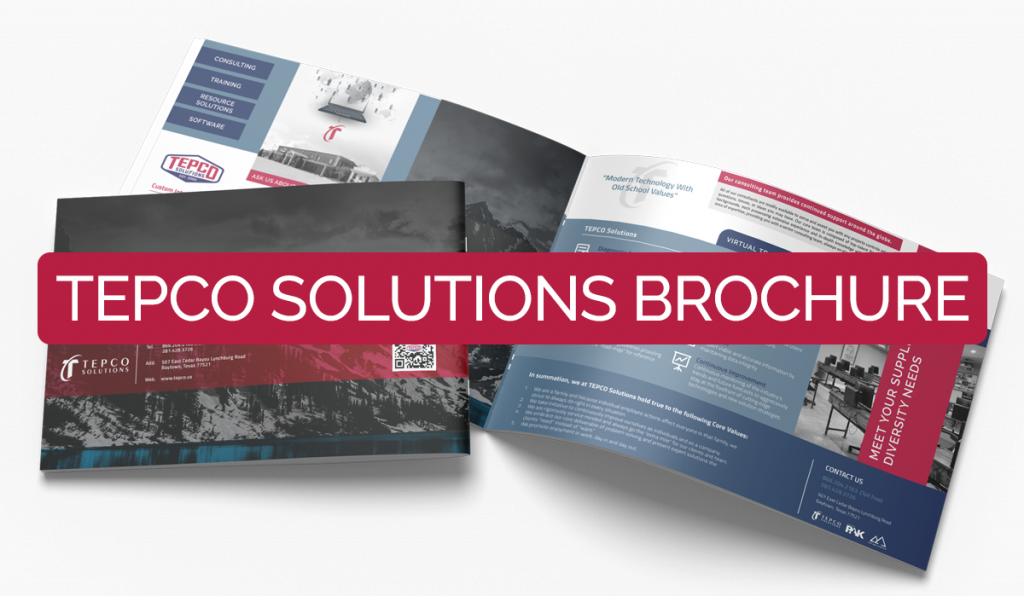
Feb 9, 2026 | Announcement, Consulting
6 Essential Tips for Effective Project Controls
In today’s competitive business environment, delivering projects on time and within budget isn’t just desired—it’s expected. At Tepco Solutions, we’ve helped countless organizations transform their project management practices through our specialized project control services. Drawing from our extensive experience, we’re sharing six essential tips to help you strengthen your project controls and set your initiatives up for success.
1. Establish Clear Baselines
Every successful project begins with well-defined scope, schedule, and budget baselines. These serve as your project’s foundation and provide critical reference points for measuring performance throughout the project lifecycle.
How Tepco Solutions helps: Our baseline development services utilize industry-leading practices to create robust, realistic baselines tailored to your project’s unique requirements. We work with your team to ensure all deliverables, milestones, and dependencies are properly identified and documented, giving you confidence in your project’s direction from day one.
2. Implement Regular Performance Measurement
You can’t manage what you don’t measure. Effective project control requires consistent tracking mechanisms that monitor progress against your established baselines.
How Tepco Solutions helps: Our performance measurement framework implements earned value management (EVM) techniques to provide objective assessments of your project’s health. Our customized dashboards deliver real-time insights on critical metrics like CPI and SPI, enabling proactive decision-making before small issues become major problems.
3. Develop a Robust Change Management Process
Changes are inevitable in any project, but uncontrolled changes lead to scope creep, budget overruns, and missed deadlines. A formal change control process is essential for maintaining project integrity.
How Tepco Solutions helps: We design and implement comprehensive change management processes that evaluate the impact of proposed changes on scope, schedule, and budget. Our automated workflow solutions streamline approvals while ensuring proper documentation and baseline updates, giving you complete visibility and control over project changes.
4. Maintain Accurate and Timely Documentation
Thorough project documentation ensures transparency, aids in decision-making, and provides an audit trail for accountability. However, many organizations struggle with documentation practices that are either inconsistent or overly burdensome.
How Tepco Solutions helps: Our document management systems strike the perfect balance between rigor and practicality. We implement efficient processes for maintaining risk registers, issue logs, status reports, and meeting minutes, ensuring your team spends less time on administrative tasks while still capturing essential project information.
5. Hold Regular Project Review Meetings
Dedicated control-focused meetings allow team members to review performance metrics, discuss variances, and develop corrective actions. These meetings should be purposeful and action-oriented.
How Tepco Solutions helps: Our project review methodology transforms standard status meetings into strategic control sessions. We facilitate structured reviews that focus on meaningful analysis rather than basic reporting, ensuring that every meeting produces actionable insights that drive project success.
6. Invest in Resource Management
Effective resource management prevents bottlenecks and ensures critical tasks have the support needed to stay on schedule. Proactively managing your team’s capacity and workload is essential for maintaining momentum.
How Tepco Solutions helps: Our resource optimization tools provide real-time visibility into team capacity and utilization. We implement resource histograms and leveling techniques that balance workloads and identify potential constraints before they impact delivery, helping you maximize your team’s effectiveness.
Transform Your Project Controls with Tepco Solutions
At Tepco Solutions, we understand that effective project controls are the difference between project success and failure. Our comprehensive suite of project control services combines industry best practices with cutting-edge technology to deliver measurable improvements in project performance.
Whether you’re managing a single complex project or a portfolio of initiatives, our experienced consultants can help you implement these six essential tips and much more. From initial baseline development to ongoing performance measurement and optimization, Tepco Solutions provides the expertise and tools you need to deliver projects successfully.
Ready to transform your project controls? Contact Tepco Solutions today for a complimentary project control assessment and discover how our specialized services can help you achieve consistent project success.

Jan 28, 2026 | Announcement, Training
Tepco Solutions Training Goes Fully Online
Tepco Solutions is excited to announce that our professional training programs are officially transitioning to an online-first learning experience—making it easier than ever for individuals and teams to access high-quality project controls education anytime, anywhere.
Our online training platform is now the primary learning hub, providing on-demand access to Cost, Planning, and Scheduling courses, with additional classes to be added.
Explore Available Courses
All current online courses are available at:
www.projectcontrolsuniversity.com
In-Person Training (Company Groups Only)
While our training is now primarily online, in-person courses are still available exclusively for company groups when 5 or more participants are registered.
This option is ideal for organizations seeking:
- Team-based learning
- Customized delivery
- On-site or private group instruction
- Structured workforce development programs
Contact Tepco Solutions to request in-person training details and scheduling options for your team.
The Future of Tepco Training
This transition allows Tepco Solutions to:
- Expand course availability
- Improve accessibility
- Support scalable workforce development
- Deliver consistent, high-quality training across industries
Whether you’re an individual professional looking to upskill or a company building long-term capability, Tepco’s training programs are designed to support your growth.
Start learning today: www.projectcontrolsuniversity.com
For group training inquiries: Contact Tepco Solutions directly

Mar 7, 2025 | Announcement, Consulting
Mitigating Risks, Maximizing Success: Tepco Solutions’ Risk Management & Assessment Services
In today’s fast-paced business environment, risk is an inevitable factor. Organizations across industries must proactively identify, assess, and mitigate risks to ensure smooth operations and sustained success. At Tepco Solutions, we specialize in providing comprehensive Risk Management & Assessment Services tailored to your organization’s unique needs. By leveraging our expertise, businesses can enhance resilience, minimize potential threats, and stay ahead in an ever-evolving landscape.
The Importance of Risk Management & Assessment
Risk management is not just about identifying potential hazards; it’s about developing strategies to mitigate risks before they impact your business. A well-structured risk management plan helps businesses:
- Identify vulnerabilities before they become critical issues
- Reduce financial and operational losses
- Improve decision-making with data-driven insights
- Ensure compliance with industry regulations
- Strengthen overall organizational resilience
Tepco Solutions offers an all-encompassing approach to risk management, combining cutting-edge technology with industry best practices to provide customized solutions for businesses across various sectors.
Our Comprehensive Risk Management & Assessment Services
Our team of experts employs a proactive and systematic approach to risk assessment, helping organizations identify and mitigate potential threats. Here’s what we offer:
1. Risk Identification & Analysis
Every business has unique risks, and our first step is a thorough analysis of your organization’s operations, supply chain, and processes. We use advanced risk assessment models to identify potential hazards and determine their likelihood and impact.
2. Compliance & Regulatory Assurance
Navigating the complexities of industry regulations can be challenging. Our team ensures that your organization stays compliant with the latest regulations, minimizing legal and financial risks. We help businesses adhere to safety, environmental, and operational standards while avoiding costly penalties.
3. Business Continuity & Resilience Planning
A strong business continuity plan is crucial for minimizing disruptions. Tepco Solutions develops tailored resilience strategies that allow businesses to recover quickly from unexpected events, whether they are natural disasters, cybersecurity threats, or supply chain disruptions.
4. Risk Mitigation Strategies
Once risks are identified, we collaborate with your team to implement practical mitigation strategies that reduce exposure. This includes contingency planning, operational adjustments, and risk transfer solutions such as insurance assessments.
5. Ongoing Monitoring & Risk Adaptation
Risk landscapes constantly change, and our approach ensures continuous monitoring and adaptation. We provide real-time insights and recommendations to help organizations stay ahead of emerging threats.
Why Choose Tepco Solutions?
TEPCO Solutions is committed to delivering top-tier risk management services that empower businesses to operate with confidence. Our expertise, data-driven insights, and customized approach set us apart in the industry. When partnering with us, you gain access to:
- A team of experienced risk assessment professionals
- Industry-specific risk analysis and mitigation plans
- Cutting-edge technology and data analytics
- Ongoing support and strategic guidance
Secure Your Business with Tepco Solutions
Don’t let unaddressed risks disrupt your operations. Take a proactive approach to risk management with Tepco Solutions’ expert services. Whether you’re looking to strengthen compliance, improve business resilience, or develop a comprehensive risk mitigation strategy, our team is here to help.
Contact us today to learn how Tepco Solutions can safeguard your business against potential risks and create a more secure, resilient future.

Mar 11, 2024 | Announcement, Training
Enhance Your Skills with P6 Basic Turnaround Scheduling | Online Course – Register Now!
Check out our latest online module, designed to empower professionals in the realm of project management: P6 Basic Turnaround Scheduling. As the demand for efficient project management continues to surge across industries, mastering the intricacies of turnaround scheduling becomes increasingly essential. With this cutting-edge module, we aim to equip individuals with the knowledge and skills necessary to excel in this dynamic field.
Why P6 Basic Turnaround Scheduling?
In today’s fast-paced business environment, a successful project hinges on effective scheduling. Turnaround projects, in particular, demand meticulous planning and execution to minimize downtime, optimize resources, and meet project objectives within tight deadlines. Primavera P6, renowned for its robust features and versatility, is a premier tool for managing turnaround projects. Our module focuses on harnessing the power of P6 to streamline turnaround scheduling processes and drive project success.
What You’ll Learn:
Through our comprehensive curriculum, participants will delve into the fundamentals of turnaround scheduling using P6. From understanding project structures and resource allocation to mastering critical path analysis and progress tracking, this module covers essential concepts tailored to the unique requirements of turnaround projects. Participants will gain hands-on experience with P6 software, enabling them to navigate complex scheduling scenarios with confidence and precision.
Module Curriculum:
- Section 02: P6 Navigation & User Settings
- Section 03: Creating the Turnaround Files
- Section 04: The Work Breakdown Structure (WBS)Section 05: Plan Validation vs Schedule Optimization
- Section 06: Adding Activities & Creating Relationships
- Section 07: Utilizing Calendars
- Section 08: Activity Codes
- Section 09: Customizing the Project
- Section 10: Creating & Assigning Resources
- Section 11: Scheduling Concepts
- Section 12: Maintaining & Assigning Baselines
- Section 13: Scheduling During Execution
Key Highlights:
- Interactive Learning: Engage with dynamic course materials, including video tutorials, and interactive exercises, to deepen your understanding of turnaround scheduling principles.
- Flexible Learning: Access course materials anytime, anywhere, through our intuitive online platform, allowing you to learn at your own pace and convenience.
Who Should Enroll:
This module is ideal for project managers, schedulers, engineers, and professionals involved in planning and executing turnaround projects. Whether you’re a seasoned practitioner looking to enhance your skills or a newcomer seeking to break into the field, P6 Basic Turnaround Scheduling offers invaluable knowledge and resources to propel your career forward. This Basic Turnaround Scheduling course is also designed for individuals who have no Turnaround experience utilizing the P6 application. Students will gain a thorough understanding of how to build schedules required to meet today’s turnaround industry.
Join Us Today:
Don’t miss this opportunity to elevate your project management capabilities with P6 Basic Turnaround Scheduling. Enroll now to unlock the tools and techniques essential for success in today’s competitive landscape. Accelerate your career journey and embark on a path to excellence with our industry-leading online module. Not sure where to begin? We also have an Introductory course available.
Empower yourself. Enroll today.






